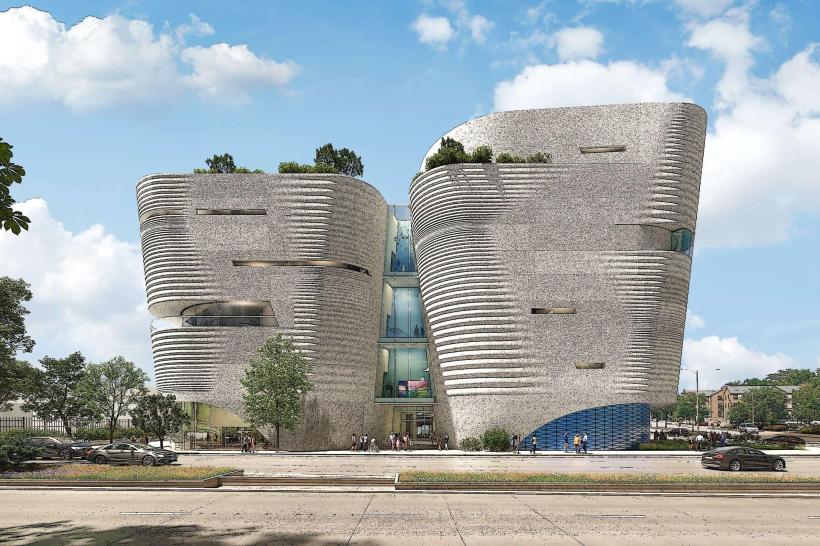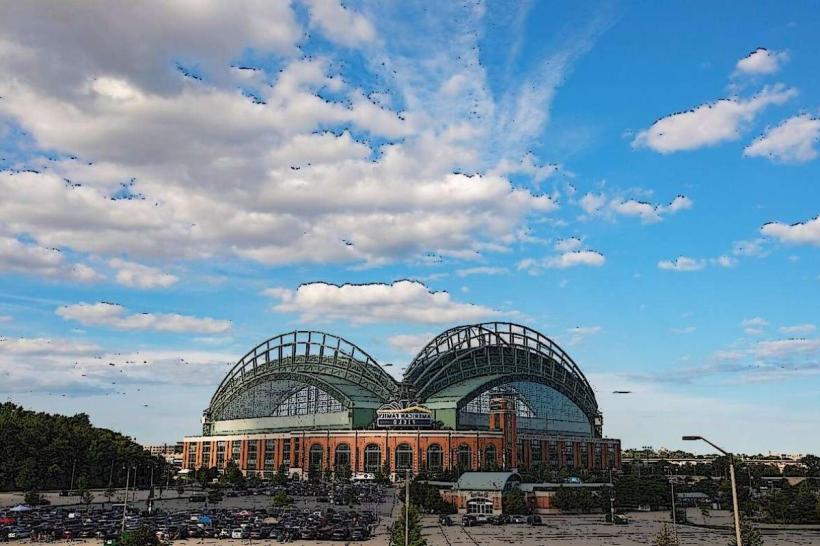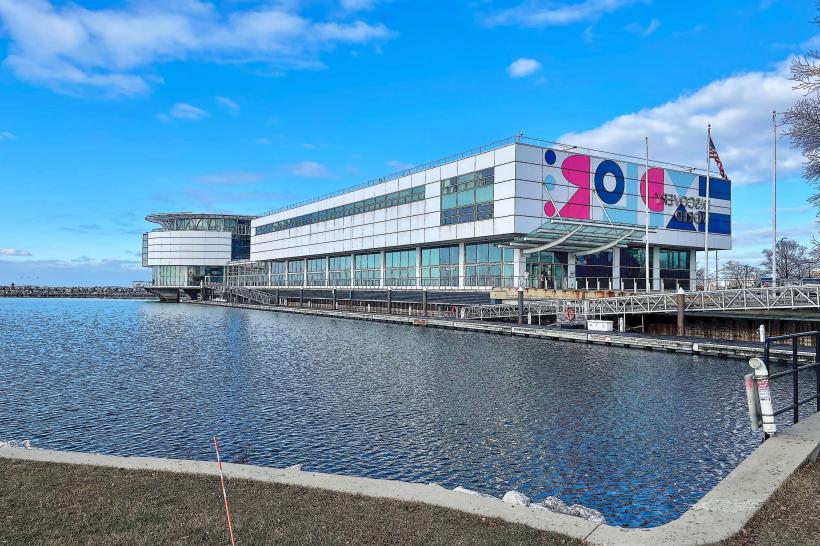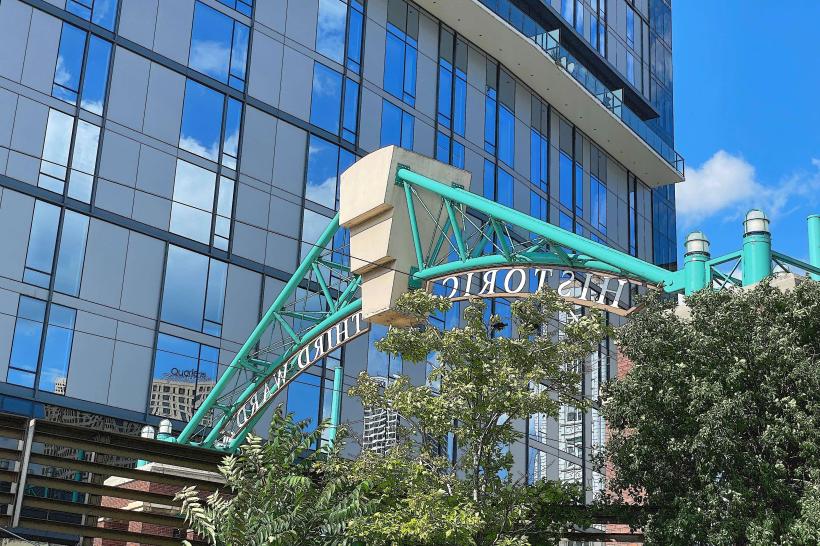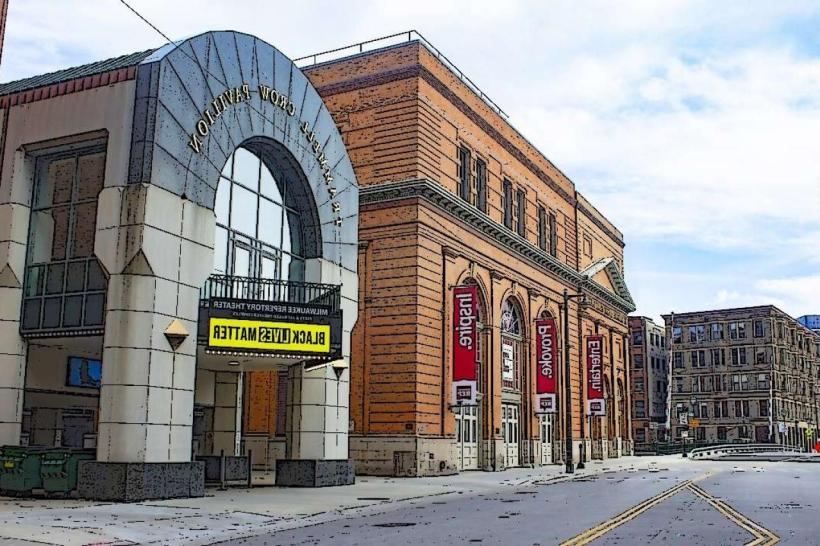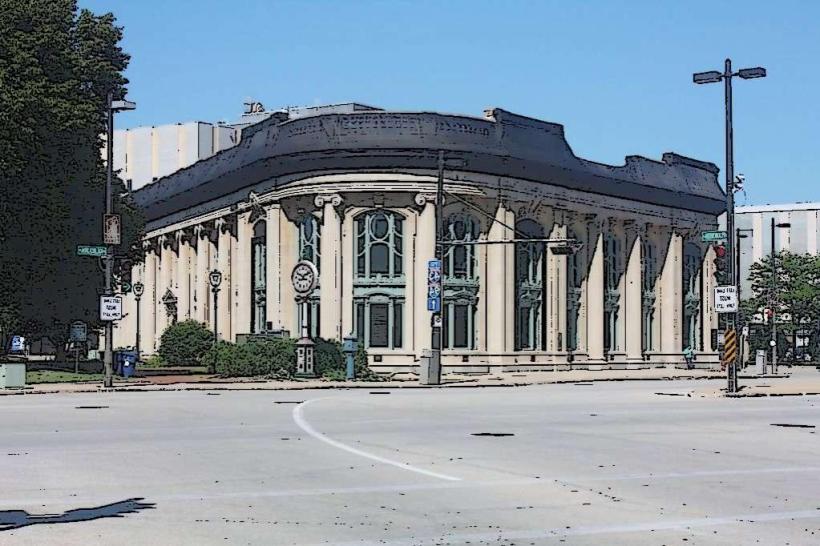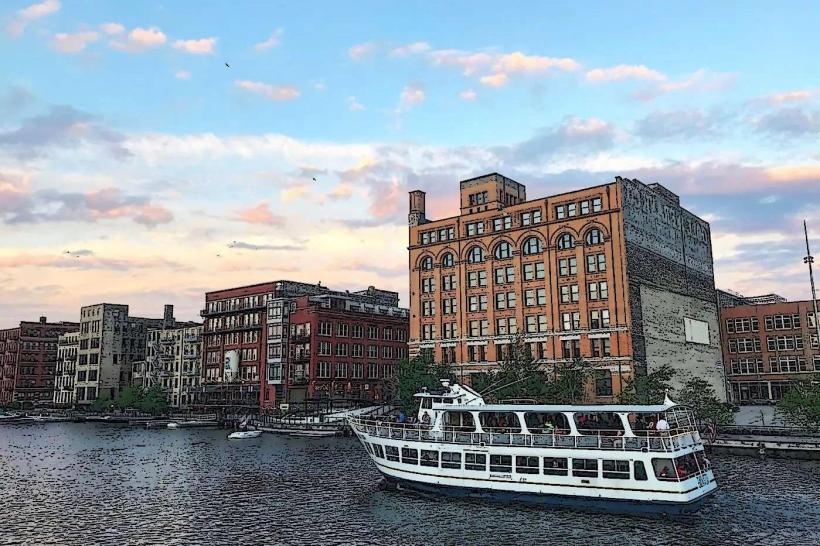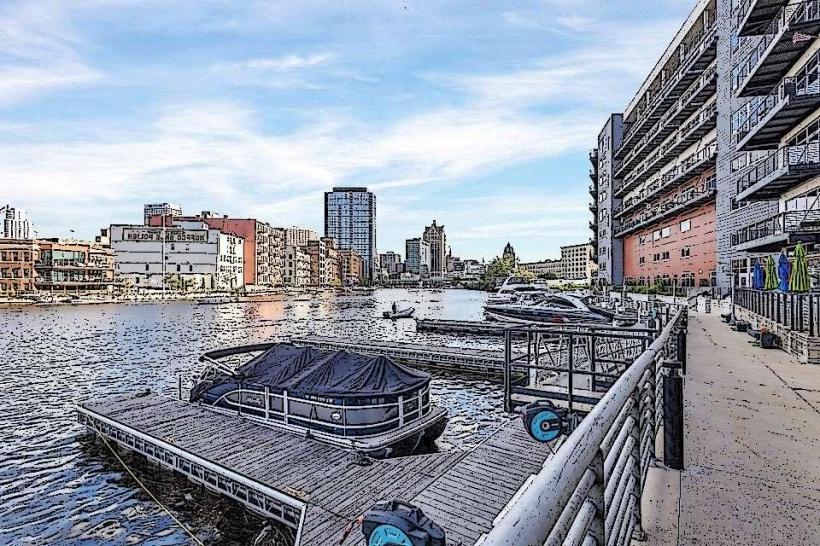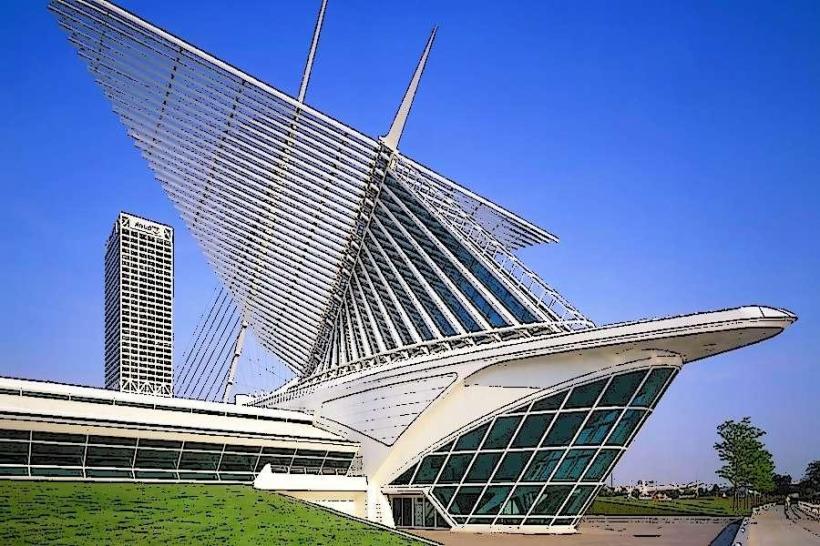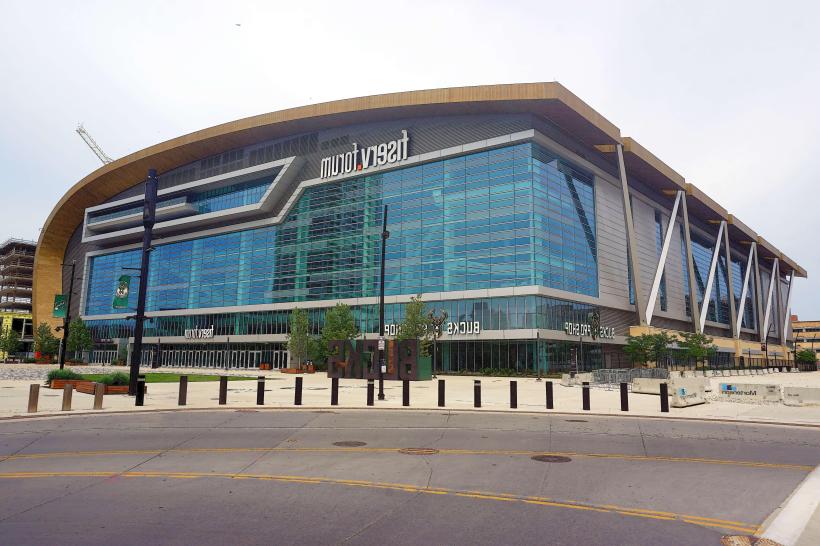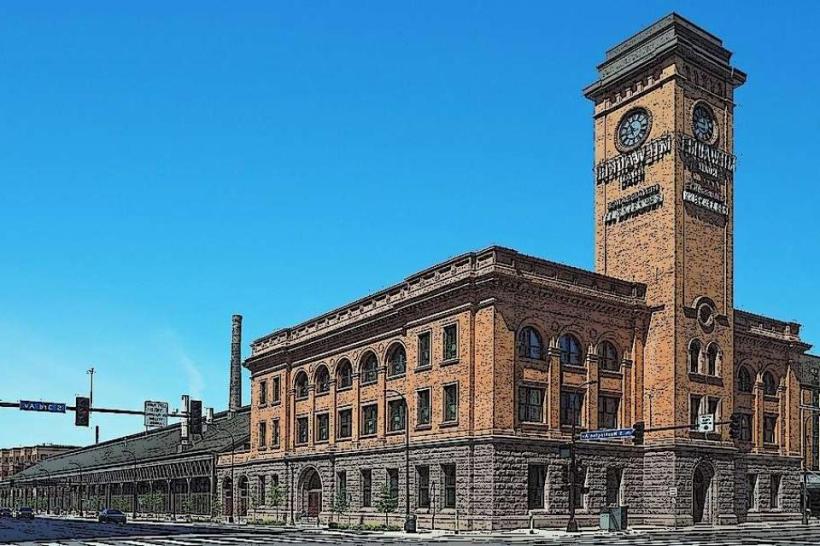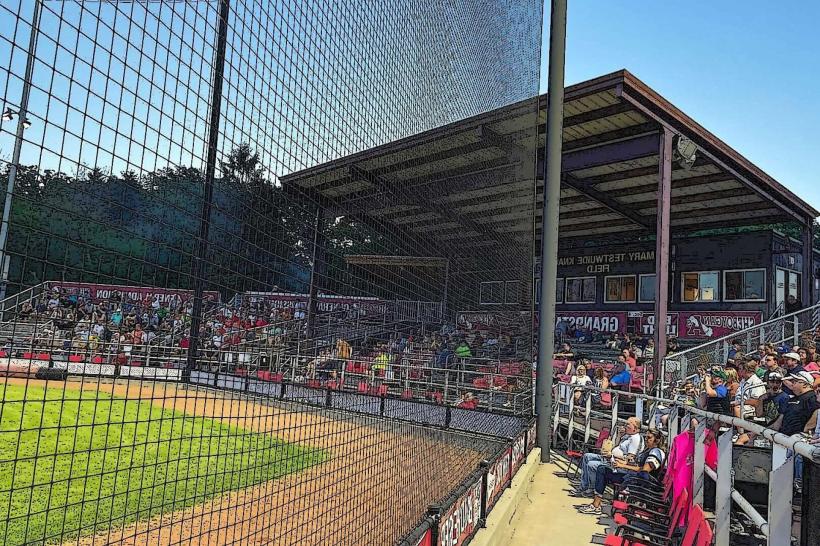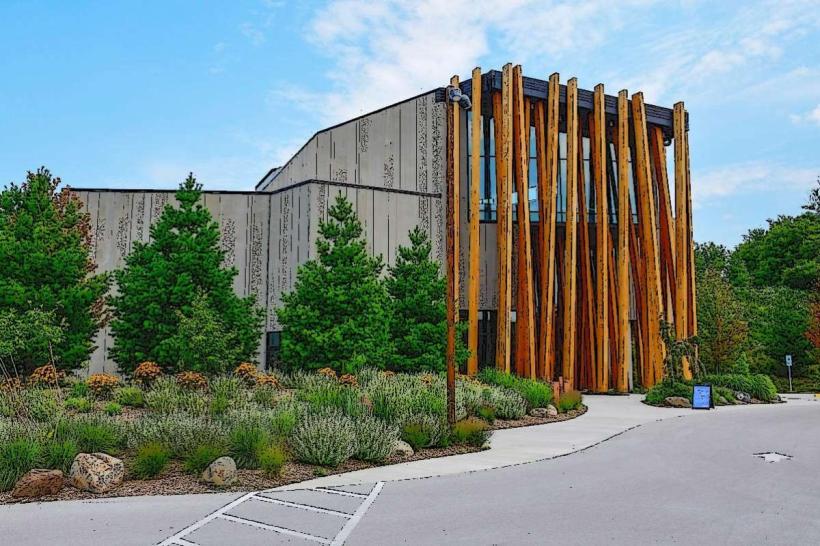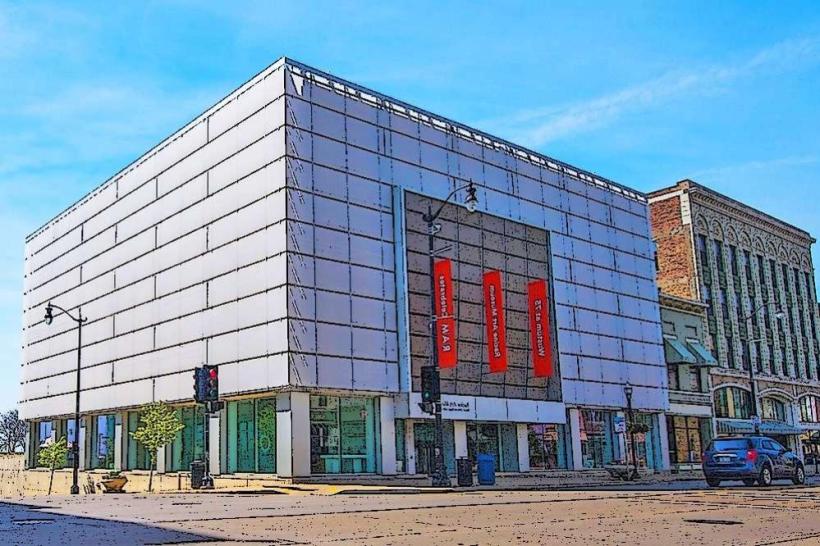Information
Landmark: Milwaukee Art MuseumCity: Milwaukee
Country: USA Wisconsin
Continent: North America
Milwaukee Art Museum, Milwaukee, USA Wisconsin, North America
The Milwaukee Art Museum (MAM) is one of Wisconsin’s most prominent cultural institutions, widely celebrated both for its extensive art collection and its extraordinary architectural design. Located on the shores of Lake Michigan in downtown Milwaukee, the museum serves as a vibrant hub for art lovers, tourists, and the local community.
History and Overview
Founded in 1888 through the consolidation of the Layton Art Gallery and the Milwaukee Art Institute, the Milwaukee Art Museum has grown into the largest art museum in Wisconsin. Over the years, it has amassed a diverse collection exceeding 34,000 works of art, spanning from ancient times to contemporary periods. The museum’s mission emphasizes education, community engagement, and showcasing art that reflects diverse cultures and perspectives.
Architecture: The Quadracci Pavilion
The museum’s architectural highlight is the Quadracci Pavilion, a striking and innovative structure designed by the internationally acclaimed Spanish architect Santiago Calatrava. Completed in 2001, the pavilion dramatically transformed the museum’s presence and has become an iconic symbol of Milwaukee.
Design and Structure: The Quadracci Pavilion covers approximately 142,000 square feet and is known for its sculptural elegance, integrating modern design with functional public space. It sits prominently along Lake Michigan’s shoreline, offering breathtaking views of the water and the city skyline.
Windhover Hall: At the heart of the pavilion lies Windhover Hall, the grand entrance and reception space inspired by Gothic cathedral architecture. This space features soaring pointed arches, ribbed vaults, and a vast glass roof soaring 90 feet high, flooding the interior with natural light and creating a spiritual, uplifting atmosphere. The hall’s design resembles the prow of a ship, symbolically linking the museum to the adjacent lake.
Baumgartner and Schroeder Gallerias: Flanking Windhover Hall are two arched promenades, the Baumgartner and Schroeder Gallerias, which provide visitors with expansive panoramic views of Lake Michigan and Milwaukee’s downtown. These galleries serve both as transitional spaces and viewing platforms, enhancing the visitor experience with stunning visual connections to the natural and urban surroundings.
Burke Brise Soleil: The pavilion’s most remarkable feature is the kinetic Burke Brise Soleil, a movable sunscreen composed of 72 steel fins spanning 217 feet in wingspan. This structure operates like the wings of a bird, opening and closing daily in a visually captivating 3.5-minute motion. It regulates sunlight entering the building, protecting the artwork inside while symbolizing openness, freedom, and movement. The Brise Soleil’s dynamic function makes the museum a living architectural sculpture and a landmark of engineering innovation.
Collections and Exhibitions
The Milwaukee Art Museum houses a vast and diverse permanent collection, notable for its breadth and quality.
Permanent Collection: It includes over 34,000 objects ranging from ancient Greek and Roman sculptures to contemporary paintings and multimedia works. The museum is especially recognized for its American art holdings, European paintings, decorative arts, and prints and drawings.
Modern and Contemporary Art: The Bradley Collection of Modern Art is one of the museum’s highlights, a significant gift from philanthropist Peg Bradley. It features works by artists such as Alex Katz, Barbara Hepworth, and others, reflecting pivotal developments in 20th-century art.
Key Artists: The museum displays works by internationally renowned artists including Pablo Picasso, Georgia O’Keeffe, and Mark Rothko, alongside regional artists who have contributed to Milwaukee’s cultural landscape.
Rotating Exhibitions: The museum actively hosts a dynamic schedule of temporary exhibitions, showcasing everything from contemporary photography and sculpture to thematic explorations of art history. These exhibitions ensure a fresh experience for repeat visitors and provide opportunities to engage with new ideas and trends in the art world.
Visitor Experience and Amenities
Located at 700 N. Art Museum Drive, the Milwaukee Art Museum is easily accessible by car and public transportation. The museum provides a range of amenities to enhance visitor comfort and engagement:
Public Transport: Served by several Milwaukee County Transit System (MCTS) bus routes and The Hop streetcar, the museum is conveniently reachable for residents and tourists alike.
Amenities: The facility includes a café offering food and beverages, a well-stocked gift shop featuring art-inspired merchandise, and various educational programs catering to children, adults, and educators.
Tours and Programs: Guided tours highlight the museum’s architecture and collection, while special programs such as lectures, workshops, and family activities foster community involvement and lifelong learning.
Event Spaces: The museum offers rental spaces for private events, including weddings, corporate gatherings, and cultural celebrations, all framed by the spectacular backdrop of the lake and museum architecture.
Cultural Significance and Impact
The Milwaukee Art Museum represents a harmonious fusion of art and architecture that elevates both disciplines. Its bold architectural design by Santiago Calatrava has earned international acclaim for pushing the boundaries of engineering and aesthetic expression. The museum is a landmark not only for Milwaukee but also within the global cultural landscape.
By integrating innovative design, diverse collections, and community-oriented programming, the Milwaukee Art Museum continues to inspire visitors, foster artistic dialogue, and serve as a vital institution that reflects and shapes cultural identity. The kinetic Brise Soleil wings have become an emblem of the city’s spirit-dynamic, forward-thinking, and deeply connected to its natural environment.
Summary
Founded in 1888, the Milwaukee Art Museum is Wisconsin’s largest art institution.
The Quadracci Pavilion, designed by Santiago Calatrava, is an architectural masterpiece featuring the moving Burke Brise Soleil wings.
Collections exceed 34,000 works, including significant modern and contemporary art.
Offers rotating exhibitions, educational programs, and community events.
Situated on Lake Michigan, the museum provides stunning views and a unique visitor experience.
Acts as both a cultural and architectural icon, symbolizing innovation and artistic excellence.
The Milwaukee Art Museum stands as a destination where art, architecture, nature, and community converge, making it an essential stop for anyone interested in the arts or modern design.

